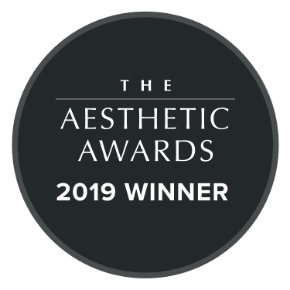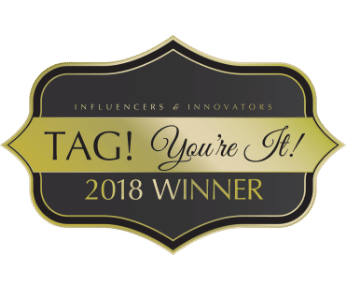Dr. Lewen’s Journey:
Mara: Dr. Lewen, thank you so much for joining us. Tell everybody a little bit more about your practice, and about who you are, what you do, and how you got started!
Dr. Lewen: I’m an Ocular Plastic or Ocular Facial Plastic Surgeon, just outside of Miami, Florida. My practice is a boutique, private practice, so we do mostly cosmetic surgery involving the eyelids and the face, primarily focused around the eyes. I do a lot of injections and laser procedures as well. I’ve been in practice here since 2012, I do a lot of, I’ll say cosmetic revisions. Some of that I think you could call reconstructive as well. Primarily we’re focused around the cosmetic surgery of the face and the eyelid area.
Choosing a Specific Geographical Market and Specialty:
Mara: What made you pick South Florida for that particular market because you’re not from South Florida?
Dr. Lewen: I grew up mostly in New York and a little bit of Chicago. It was kind of happenstance, how I wound up in the south. I did my medical school residency training between Chicago and New York and then I got a fellowship position in the south, in Houston, Texas. I wound up taking my first job in Atlanta and then working for another practice for the short term in Jacksonville, Florida, which is the northern part of Florida. I think after my group practice experiences, fresh out of trading, I was looking for a specific market and environment to build a private practice, especially one that was going to be more of a boutique style. Certainly, again, my goal is to be focused more on cosmetic surgery and the aesthetic appearance of the eyelids and face. I think for what I was looking for, there were only a handful of markets that I thought would really give me what I wanted and South Florida happened to be the one that was closest at the time. I did a lot of market analysis and it just kind of worked.
Mara: What made you choose the Ocular side because it’s so niche and I think as people are looking into somebody that really has a true specialty I mean, it’s really a specialty. What made you decide to go on the Ocular side of things?
Dr. Lewen: I think that I have a little bit of an interesting story. My initial interest actually was facial plastic. I was doing an elective rotation in medical school, in-ear, nose, and throat. I was covering a major trauma Hospital in the northeast, and it was pre-malignant rotation in the sense that I was up at four o’clock in the morning doing rounds and in surgery until you eight o’clock at night and then rounding again on patients and sometimes not sleeping more than, four hours a night. A lot of the cases I was doing were advanced squamous cell cancer of the head and neck area and it just wasn’t something that I saw myself doing long term. So I actually switched my application at the last minute from nose and throat to ophthalmology. As soon as I started ophthalmology, I realized I still wanted to do facial plastics. I basically found another way to do facial plastics and that’s essentially how I fell into oculoplastics. But I really love as you said, the fact that I’m specialized and I have sort of my niche. I think no matter what you do in any field, even outside of medicine, the people who do it best are the ones who do the things that they do best. It’s hard to be an expert on everything, so I kind of like that.
Continuously Being Educated As A Healthcare Professional:
Mara: I think that’s one thing that we’ve definitely learned about you over the years because you and I have known each other for years now. You know what you want and once you decide on what it is that you want, it’s full speed ahead. One of the things that I’ve seen with that too, it’s always like that with you when it comes to continuing education, as well. I’ve seen over and over again where one surgeon or a doctor could choose the easy route, you always choose the route that you’re going to get the most education possible and you see the same for your team too. Where did that passion come from? What have you gotten out of that when it comes to the education side of your practice?
Dr. Lewen: I think it goes back to the quality of the air and really what you want to deliver to your patients or clients. For me, again, being a subspecialist, I always felt like I wanted to deliver the most comprehensive and the best options possible to address what people actually were concerned about. Especially in the aesthetic field, cosmetic surgery, eyelid surgery, there is a lot that changes. Many things stay the same in terms of general concepts, you know, anatomy hasn’t changed in years, but maybe our understanding of certain things is a little bit better. I think especially as you’ve seen more non-surgical treatments come into larger popularity in the last 20 years with Botox and facial fillers and more energy-based procedures for treating skin and fat and whatnot. If you’re really trying to rejuvenate people in the most natural way possible, I think you’ve got to take an approach that really gives people back their own natural beauty that they already have, and maybe they’ve slipped a little bit from. This sort of concept of trying to make people look like somebody else, or somebody coming in with a picture of a celebrity and say, I want to look like this. That’s just not what my practice is about. If you want to stay at the top of that, education is an important part. You’ve got to stay consistent and up to date with the most current offerings in the field, the most current techniques, and the best ways to offer those techniques. That means to stay up to date with new technology, making slight modifications on the surgery that you might have been doing one way for many years, you have to be open to sort of looking at different ways to address the problem.
The Shift From Surgical To Non-Surgical:
Mara: Tell me about what you have seen even in the time that you’ve had your practice and the shift from, must be surgery, to all of the non-surgical options that are out there. How do you help a patient choose between a non-surgical option and a surgical option for something, what do you take into account? How do you help them with the choice? And how have you seen those trends shift?
Dr. Lewen: I think the trends are similar to what everybody’s seen. Basically, we’ve seen more non-surgical options become available, and so we’ve had to attain a better understanding of what these things can do, especially in terms of getting results that might be more subtle, more natural. I think we can oftentimes prolong the amount of time that people might be able to go without having a more advanced surgical procedure. In general, I think what I’m finding is a lot of people don’t want to take time off. A lot of people don’t want to be, bruised and swollen, they don’t want to take the risk of surgery. If you can offer them options that might solve their problem without that significant downtime sort of incorporated, then those are really good options for a lot of people.
Making Decisions As A Business Owner:
Mara: When you are evaluating all of this with the patient, there’s obviously the decision on the practice owner side. How do you decide when and when not to make those bigger decisions, whether it’s buying a new piece of equipment, adding a new member to your team or a new position, how do you go about making those decisions from a business owner standpoint?
Dr. Lewen: I think the decision process in terms of where we need to add additional things, whether that’s people or technology or services or whatnot. Especially in a boutique practice, we want to be patient-centric. So it really has got to go all the way back to the patient. I think it goes back to the previous thing that we were talking about, which is how do you decide what patients are going to need, whether they’re going to need surgical options or non-surgical options and that has to come from conversations with patients. What is their pain? Pain in terms of not necessarily physical pain, but what is the thing that they actually need or want, something that we have the ability to offer them. Does it fit within their budget and budget is not always just the amount of money that they’re willing to spend, but how much time are they willing to invest in this? One in terms of the process in terms of the downtime that might be associated with this.
Mara: That’s a great point, that budget isn’t necessarily just a financial budget, but it’s a time commitment and downtime budget too because our time is one of our resources.
Dr. Lewen: From my conversations with people, I actually think that time is the more valuable resource when you actually get down and dirty in it. Money is important, for sure, but for most of us that have the means to consider cosmetic procedures or surgery, it’s really the time investment that’s involved. if you really want something done, you’re going to find the money to do it. There’s financing programs, there are other ways to kind of get around things. The time sometimes is a bigger thing that you can’t always figure out how to work it into your life. I think that’s definitely something you have to put a little bit more thought into. So again, in terms of when we make decisions about how we’re going to expand the practice, I think the initial thought process comes from those discussions with our patients. Then do we already have what we need to offer what we want to these people? In terms of options for rejuvenation, are people talking about things that I think we have the ability to offer them exceptional results and natural improvement, or are there gaps in our ability to offer what the patient may need in terms of people? Is our process with that patient from the moment that they become interested in our practice to the moment they leave our practice and sometimes even beyond the follow-up. Is that process as seamless as we want it to be? Do we hear feedback that we could be improving certain steps of the process or do we find that maybe we hit roadblocks or are sort of bottlenecks at different aspects and it might be helpful to have additional support? I think that’s sort of where we consider those types of practice decisions in terms of adding human resources.
Mara: I think that they’re all great points and when we look at what are the opportunities for improvement, and we’ve done this with your practice, there’s been a lot of surveys that are sent out. Patient satisfaction surveys, when we’re looking to buy a new piece of equipment, you’ve sent out surveys to your patients saying, is this something you would be interested in? Whether it’s a written survey, whether it’s conversations that you’re having with your patients as they’re coming in, whether it’s an electronic survey, but I think that’s a great point to bring up is going to your patients and letting your patients help drive those decisions. If you go out and you buy this big, expensive piece of equipment or you add in another team member, but there isn’t the need for that equipment or that team member, then you’re out a huge expense and then that becomes an expense over an investment. I think a huge part of that as well is knowing your patient demographic because that helps drive the decisions to know what your patient base will and won’t go for in your practice as far as surfaces.
The Decision Between Partnering With Another Surgeon Or branching Out On Your Own:
Mara: What made you decide to go completely out on your own?
Dr. Lewen: I worked with a couple of group practices out of training and with each of the group practices because I’m a subspecialty the groups that I worked with were ophthalmology groups. Even though I was just doing the plastics component of that I had to kind of fit within their model of how they saw patients and how the operations of the practice ran. With some things, it worked really well if I was doing more medical visits. However, when I was focused on more cosmetic visits it sometimes didn’t quite gel with what I sort of saw my mind as being the ideal practice model especially if I wanted to create more of a concierge experience and environment and provide that higher level of service. I had experience working with the two different groups and kind of setting up a division within them, which was the actual plastics division, I think that gave me a little bit of experience with working with vendors and deciding equipment and instruments and protocols and how we were going to do follow-ups and arrange the schedule and whatnot. I think after I had a couple of experiences with those groups I kind of saw that I wanted to do something a little bit different.
Investing In Your Team:
Mara: You really value protocols in your practice, that is something that you make a point that everything needs to have a protocol, everything needs to have a system. There is a system for sales, there’s a system for the medical side of things, everything needs to have a protocol and this is the way that it’s done. Why did you decide to make that investment with your team on the administration and sales side?
Dr. Lewen: It’s interesting because in medical training and in my fellowship when I was observing other ocular plastic surgeons doing cosmetic surgeries and doing their consultations, what I really didn’t understand fully was how the conversation best suited so that we’re again addressing the needs of the person who’s sitting in front of you. What I think is understated sometimes with what we do, we’re certainly affecting physical appearance, but the more profound effect that we have on people is actually something that happens inside. The ways that I do everything is about making people feel better about themselves, it’s all about self-confidence. Once I discovered that what I realized is I needed a little bit of work to try to figure out how to get to that conversation so that they could understand why they were there, in terms that were a little bit more complete. There’s a lot more from a psychosocial standpoint that goes into what we do. I think having a better understanding of that was going to benefit the people around me.
Mara: We always say that there’s a couple of questions to ask prior to surgery. Number one you want to find out, what is their timeline. Is somebody planning on having that procedure that day, especially if it’s non-surgical because psychologically, that tells you, they’ve been thinking about it for several months, or they just thought of it this morning. Where are they in that psychological journey? We always say to our clients, ask the patient, how would this procedure make them feel? That is where coming back to what you were saying, that is one of the biggest game-changers that we find between the relationship between the patient and the practice helps both parties understand why they want the surgery. It helps that conversation move along so much quicker because that’s when you get to the bottom of it all.
Dr. Lewen: It’s a more complete understanding of what drives human behavior, and the decision making process. As much as some people may be a little bit uncomfortable with it, and some people might not want to accept it’s truly the case. Humans make decisions with their emotions. They’re made rational with their intellect. All decisions are made from an emotional place, so you’ve got to bring emotions into a conversation. That kind of conversation is not something that doctors sometimes are used to having. That’s not something they teach you in medical school. It’s not something you would learn in a classic residency unless you were lucky or fellowship unless you were lucky enough to have a mentor who had a better understanding of some of these things.
Healthy Habits In Your Personal Life:
Mara: What would you say are two or three healthy habits that you’ve found having in your personal life are able to help you through the day in your professional life?
Dr. Lewen: I’ll say first and foremost, the greatest lessons I’ve learned in life have come from failures. The things that I think make the biggest difference for me are understanding that everything has to have a balance. There’s always work to be done and I feel like I could always dive into 16 hour days at the office. The reality is that I’ve done that and that does not create the balance in my life that I need to find happiness and fulfillment with what I’m doing. I think it takes away from some of the time that I am here with patients wanting to give them my very best. I have to take time for myself to do that and to keep myself fully charged. It sounds kind of cliché, but the best ways to do it are having a regular routine. I love getting up early in the morning and taking advantage of quiet time in the morning before the rest of the world is up. I routinely get up about a quarter to five, I feed and walk my dog, I meditate in the morning, and when I exercise and get ready for work. I think having that routine in the morning really kind of helps me set my goals and prioritize my day. Even if I know I’m going to struggle with other things throughout the day, or if I hit a speed bump with obstacles that come up, I can always go back to the time that I give myself in the morning as sort of my strong foundation that I’m laying for the day.
Mara: I love that and I think that that makes so much sense. You also do your best as far as being a healthy eater as well, you and I have been known to share a random vegetable snack in the middle of a long day of meetings, but I think having that balances everything out.
Dr. Lewen: When I’m here in my office during the day I’m looking for things that are going to fuel my body in the best way possible. That means most of the time I’m eating clean and healthy, lots of fruits and vegetables during the day. Most of my week is maybe consumed with eating much of the same thing, very simple. Then when I go home if I want to have a nice ice cream cone you don’t have to feel guilty about that kind of stuff.
Concluding Questions:
Mara: Number one, what is one thing in your career that you’ve learned along the way that you’d like to share? Number two, what would you do differently in your career if you had to do it all over again? Number three, either personally or professionally, what are you most proud of?
Dr. Lewen: One thing I’ve learned along the way is that people and relationships are everything. The importance of building strong relationships with people who have similar interests, similar goals, similar values, looking for ways to add value to their lives in terms of a simple conversation, but something that’s positive and uplifting. Then, where can I also get value from those relationships in terms of mentorship, advice guidelines, sometimes just friendship, or somebody to give you comfort in certain circumstances. Life can be challenging at times and I wish I had taken more time to fill up more mentorship type relationships earlier on in my career, something that took me a little while to get going. Something I would do differently I think when I first started the practice I thought well I can do a lot of these things myself. I can set up my own procedures, I can do my own billing, I can do my own hiring, I can post my own codes when they need to go out. I didn’t try to answer my own phones. Thankfully.
Mara: You were a glorious octopus at one point you just had your hands into every little bit.
Dr. Lewen: What I realized with some mentorships, time, and business relationships that I have built, especially more recently is that it’s okay to ask for help. You’re never going to be efficient and successful doing what you love to do if you’re doing everything that you can do. Just because you can do something, or you think you may be able to do it better doesn’t necessarily mean that that is the best use of your time. You have to pare down and value and maximize the time that you have so that you’re doing the things that you are best suited to be doing. Lastly, what I’m most proud of, it goes back to people. I’m most proud of the trust that other people put in me. I think that is a function of reputation and the way that you deliver care, the way that you treat people, patients, employees, administrators, consultants, or receptionists.












